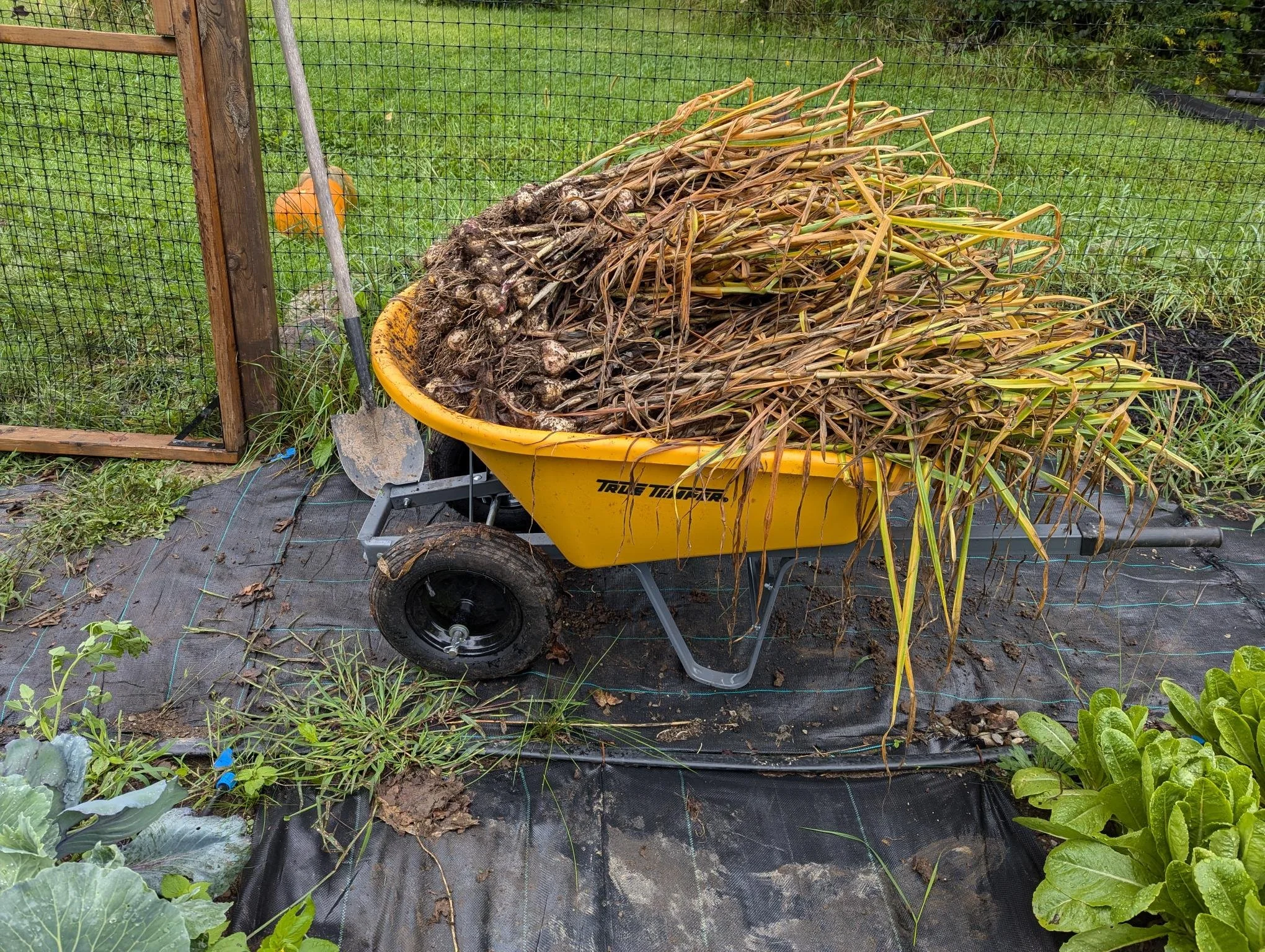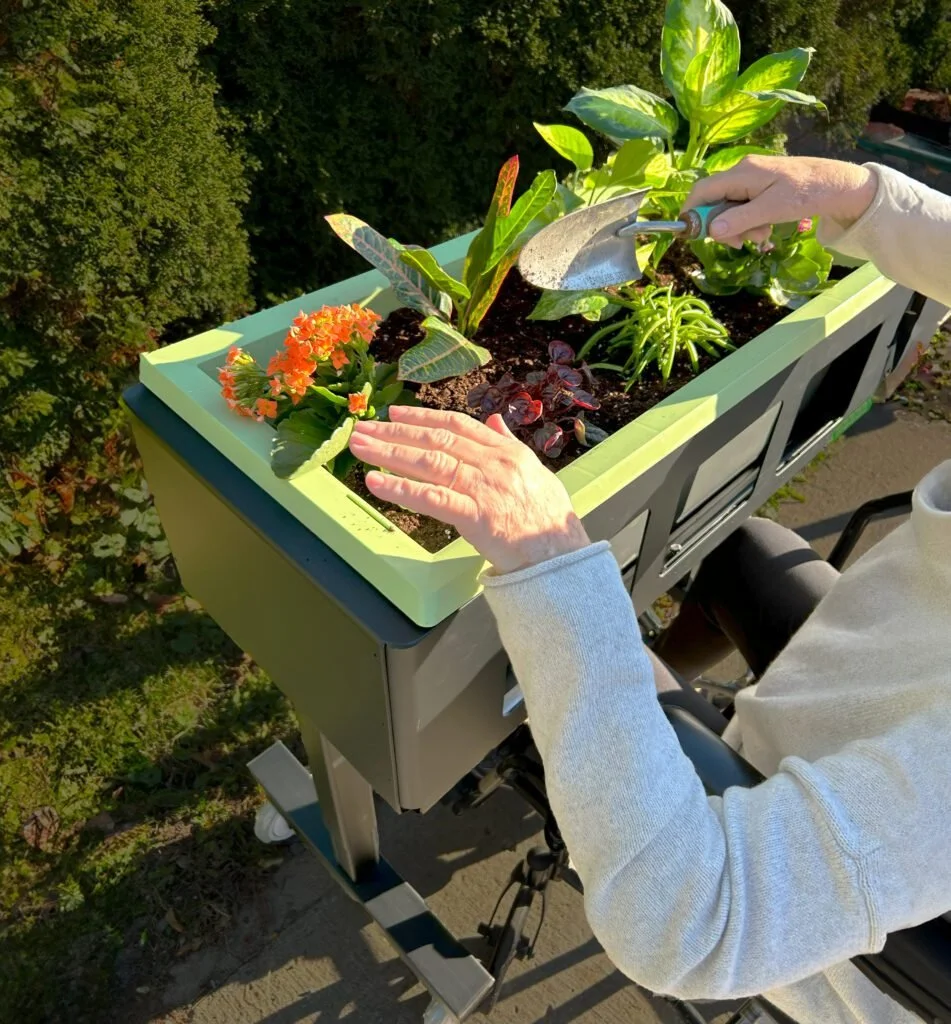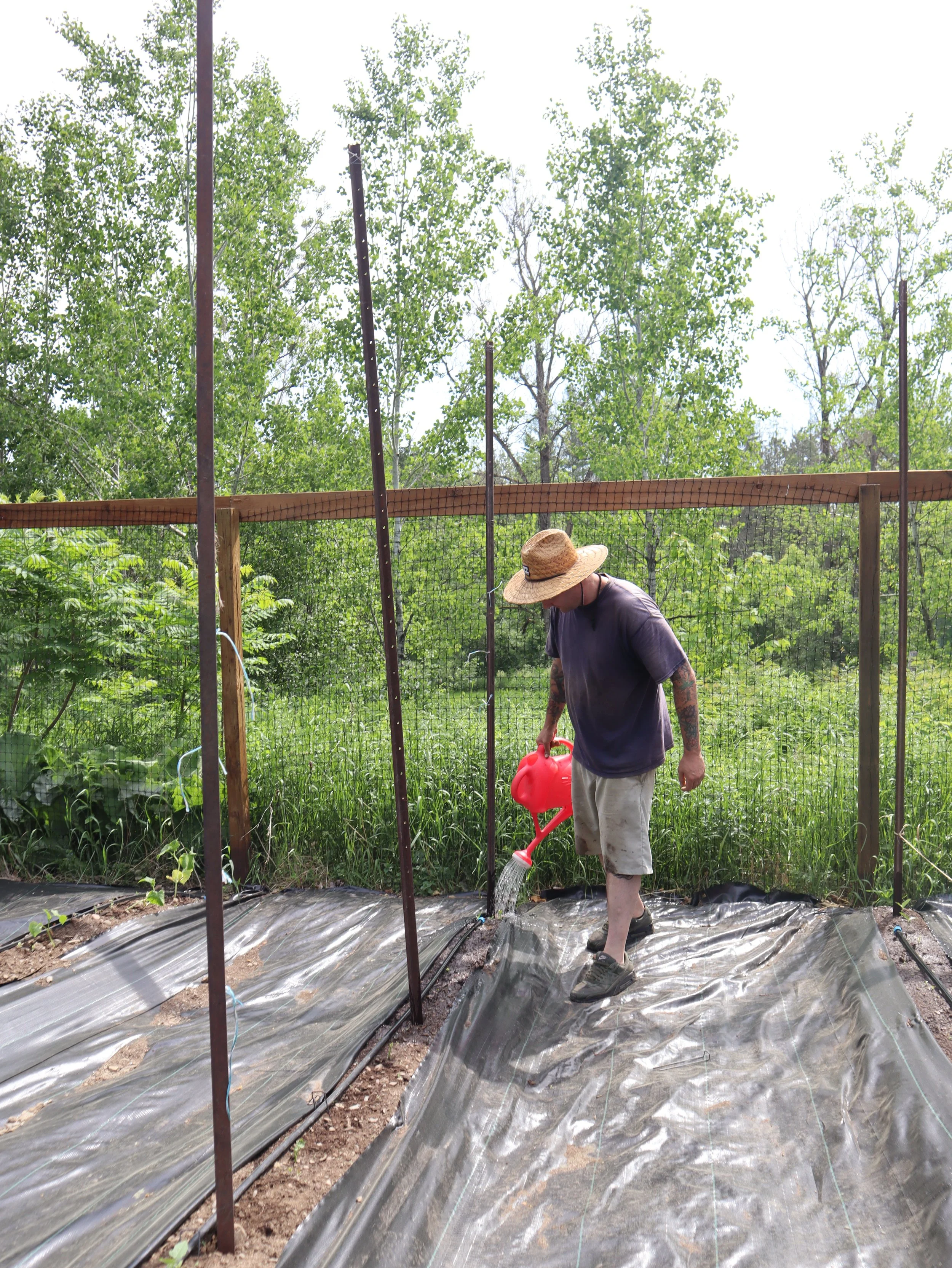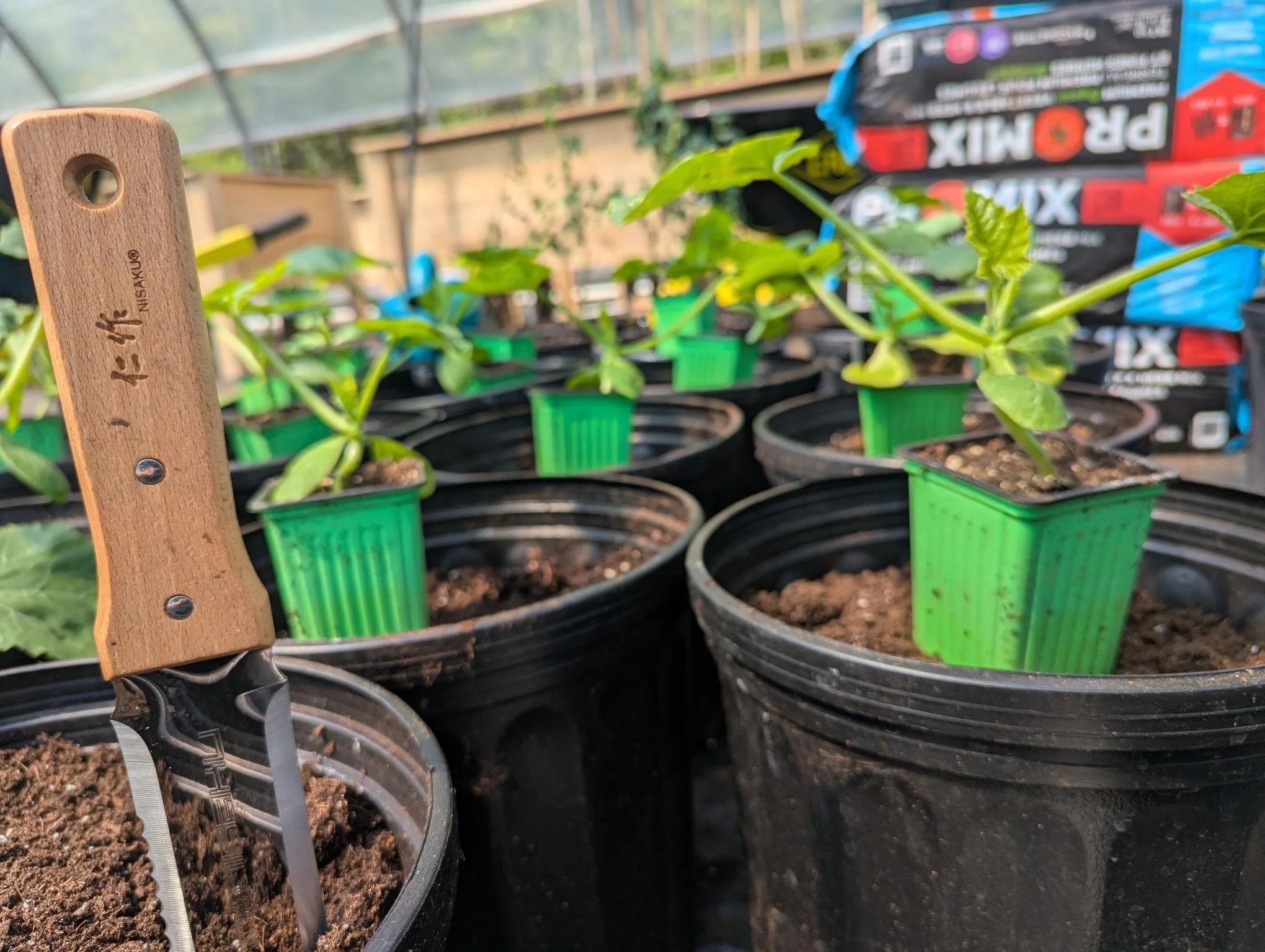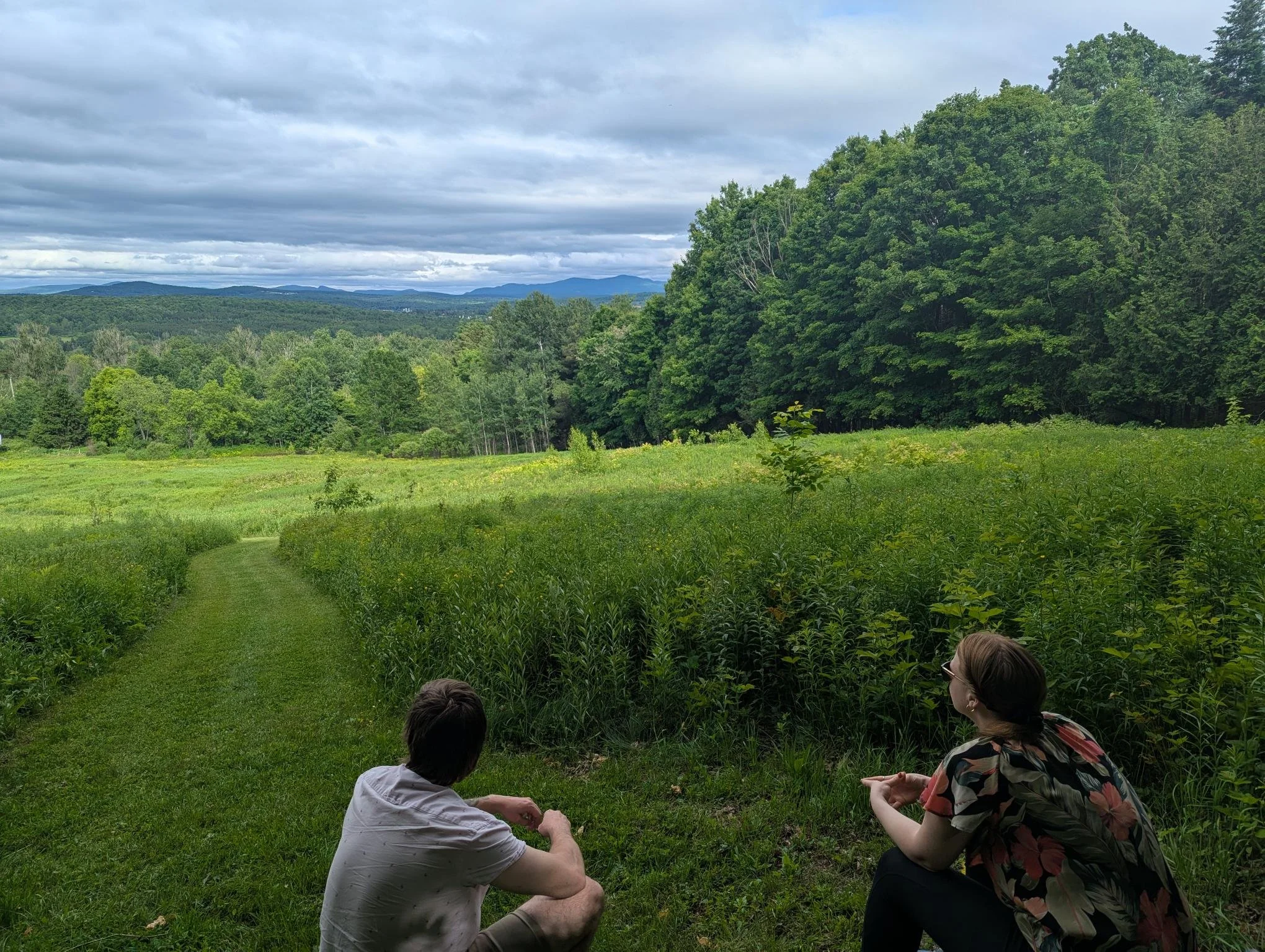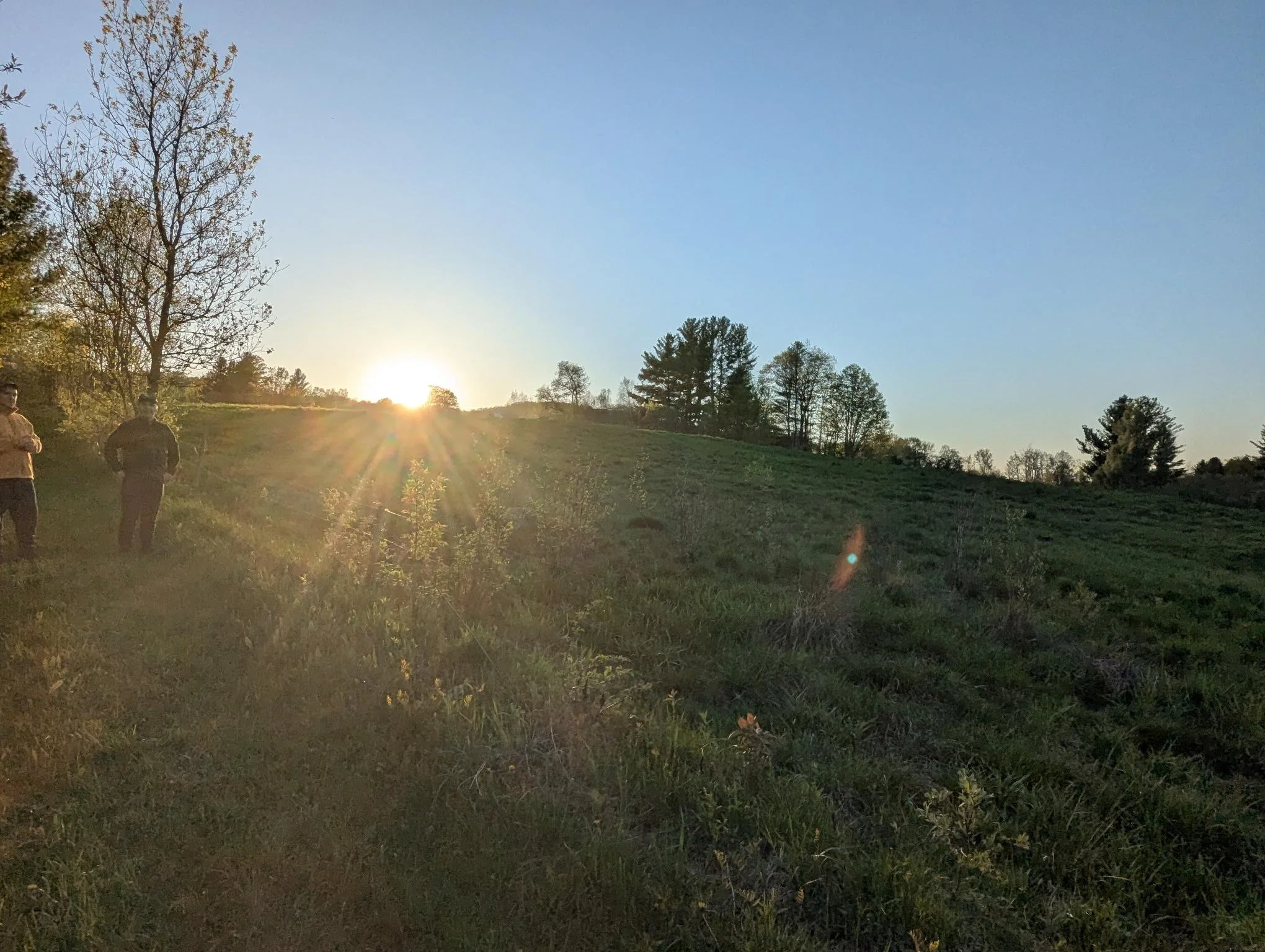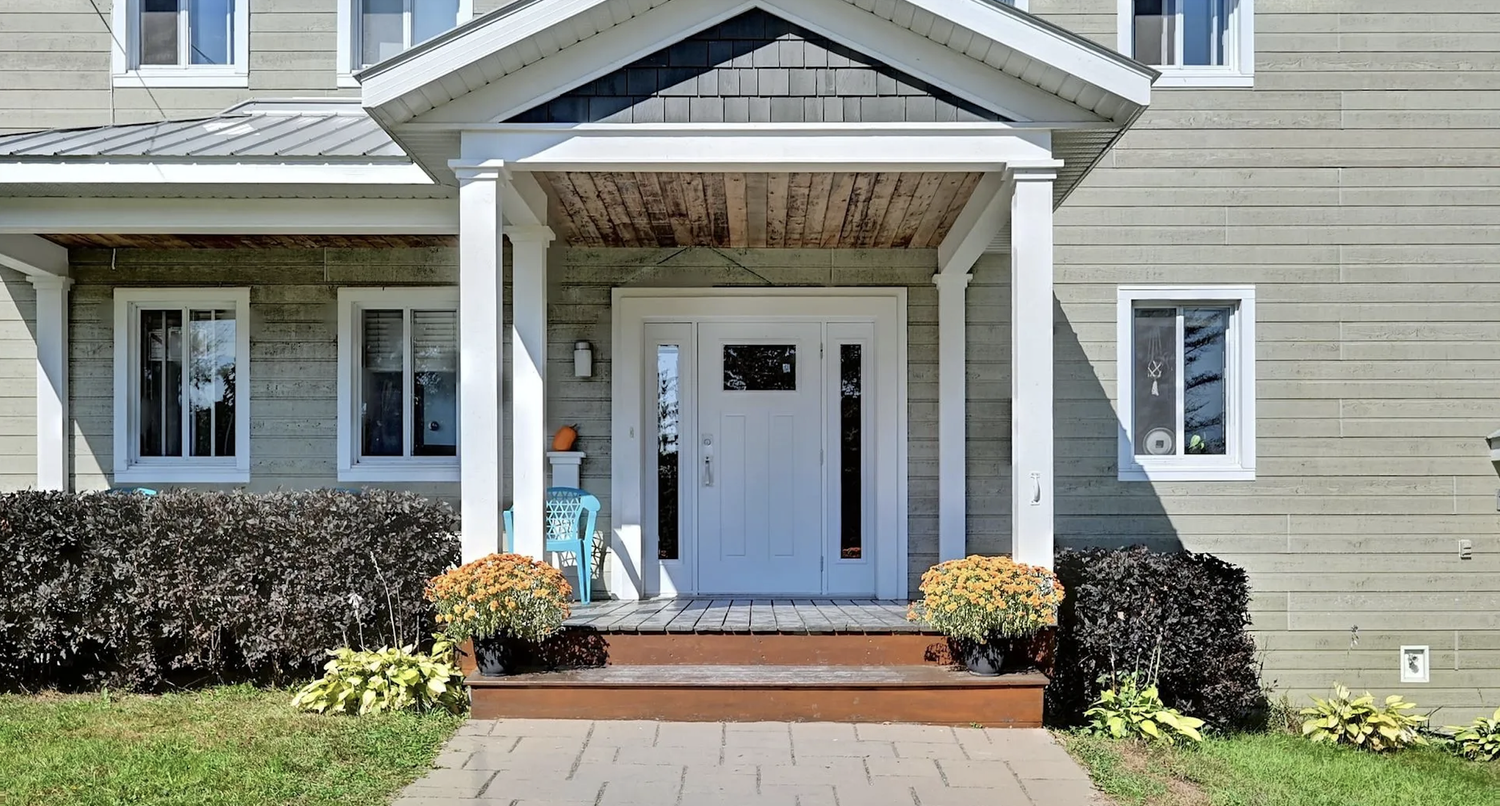Horticultural Therapy: How Our Partnership with Root in Nature Enhances Dual Diagnosis Healing
At Dunham House, we've observed something truly transformative over the past few years. Our collaboration with Root in Nature has fundamentally reshaped our approach to dual diagnosis treatment, bringing the restorative power of horticultural therapy directly to our residents.
As Quebec's leading English-language center for dual diagnosis treatment, we deeply understand the distinct challenges our residents navigate. When individuals grapple with both substance use disorders and mental health conditions like depression or anxiety, conventional treatment methods often fall short.
This is precisely why we've integrated therapeutic horticulture programs as a vital component of our all-encompassing care model.
Our Path to Horticultural Therapy
Nestled within our expansive 85-acre campus in Quebec's picturesque Eastern Townships, we've cultivated something truly special – a 7,000-square-foot therapeutic garden that serves as far more than just a source of fresh produce.
Under the expert guidance of our Lead Gardener, John Look, whose award-winning peppers and beans have garnered acclaim at the Brome County Fair, our residents actively participate in meaningful plant cultivation activities.
We've discovered that as you nurture plant life, you simultaneously learn to nurture yourself.
The science behind this observation is compelling. Research from the University of San Francisco indicates that participants in horticultural therapy programs experience significant reductions in stress and notable improvements in overall well-being.
The Science Underpinning Our Success
Recent meta-analysis research published in the Journal of Psychiatric and Mental Health Nursing offers powerful validation for what we witness daily.
The study revealed a medium effect size (0.55) on mental health outcomes with no adverse effects when therapeutic horticulture programs incorporate at least eight sessions involving both indoor and outdoor plant-based activities.
However, the neurobiological mechanisms at play present an even more fascinating narrative.
Research demonstrates that engaging in therapeutic garden activities can elevate Brain-Derived Neurotrophic Factor (BDNF) levels by up to 36% after just 20 minutes. This surge promotes neural survival and synaptic plasticity, which are critical for addiction recovery.
Simultaneously, these activities modulate neurotransmitter systems, boosting serotonin and dopamine while decreasing cortisol levels. This creates an optimal biological environment conducive to mental health healing.
For our dual diagnosis patients specifically, horticultural therapy addresses multiple therapeutic objectives concurrently.
How Our Partnership with Root in Nature Flourishes
Photo courtesy of Root In Nature
Our collaboration with Root in Nature has been profoundly impactful. They contribute specialized expertise in therapeutic horticulture programs that perfectly complement our clinical approach.
We've structured our horticultural therapy programs to span 4-12 weeks, with sessions lasting 60-90 minutes, occurring 1-3 times weekly to ensure sustained benefits.
Group sizes of 6-12 participants are ideal for fostering social interaction while maintaining personalized attention.
Our methodology incorporates both active engagement through planting, cultivating, and harvesting activities, alongside observational elements for residents with varying physical capabilities.
The sensory-rich focus of our horticultural therapy program utilizes plant species carefully selected for their texture, scent, visual appeal, and taste. This cultivates multi-dimensional therapeutic experiences that support emotional regulation and mindfulness practices within our therapeutic garden.
Authentic Stories from Our Residents
The University of San Francisco study captured sentiments we frequently hear from our residents. One participant shared: "Sometimes talking doesn't work for me; taking action and doing something positive is also something I value."
They further elaborated: "I also really appreciate the teamwork aspect and the opportunity to collaborate with others toward a greater purpose. I wholeheartedly recommend gardening because it provides the mental space I need to relax and offers a chance to connect and communicate with others undergoing treatment."
These heartfelt testimonials echo what we witness daily in our therapeutic garden.
Cultivating Community Through Plant Cultivation
The social benefits of horticultural therapy are particularly valuable in dual diagnosis treatment, where isolation and strained relationships often complicate the recovery journey.
Garden activities naturally encourage communication and cooperation, assisting residents in rebuilding social skills within a low-pressure, task-oriented setting.
Group gardening projects create opportunities for residents to experience healthy interdependence. They learn to rely on others while contributing their own efforts toward shared objectives.
The symbolic dimensions of plant cultivation offer potent metaphors for the recovery process. Residents frequently draw parallels between nurturing vulnerable seedlings and cultivating self-compassion.
They liken the patience required for plant growth in their therapeutic garden to the gradual nature of personal healing. These organic metaphors often prove more accessible than the traditional therapeutic language employed in mental health treatment.
Professional Standards and Clinical Integration
Professional oversight ensures that horticultural therapy maintains its clinical integrity, rather than being perceived as a mere recreational activity.
Our multidisciplinary team includes certified professionals who address both the horticultural and clinical facets of mental health treatment.
We seamlessly integrate horticultural therapy activities with evidence-based treatments such as Cognitive Behavioral Therapy (CBT), Dialectical Behavioral Therapy (DBT), and Motivational Interviewing.
This comprehensive model recognizes that addiction recovery involves re-establishing one's relationship with life itself. Few activities are as fundamentally life-affirming as cultivating plant life and caring for living organisms within a therapeutic garden setting.
Measuring Success and Outcomes
We are steadfastly committed to evidence-based practices. Utilizing standardized instruments, we meticulously track measures of depression, anxiety, stress levels, and overall quality of life.
This enables us to clearly demonstrate the specific mental health benefits residents gain from plant-based therapeutic activities, complementing traditional treatment modalities.
Economic advantages complement therapeutic outcomes, rendering horticultural therapy programs cost-effective enhancements to mental health treatment.
The fresh produce we cultivate helps reduce our facility's food costs while simultaneously elevating the nutritional quality for our residents. More significantly, the stress reduction and improved mental health outcomes contribute to lower relapse rates.
Long-Term Recovery Benefits
The efficacy of horticultural therapy for dual diagnosis treatment extends well beyond the immediate treatment period.
Research indicates that individuals who maintain connections with nature and plant-based activities through therapeutic horticulture programs exhibit lower relapse rates and achieve better long-term mental health recovery outcomes.
The skills honed through horticultural therapy programs – patience, responsibility, goal-setting, problem-solving – translate directly into sustained recovery.
Residents learn to embrace delayed gratification as they await plant growth. They establish daily routines centered around plant care and experience the direct consequences of both nurturing and neglectful behaviors within a safe, forgiving therapeutic garden environment.
The development of plant cultivation skills through horticulture therapy programs offers practical advantages that persist long after treatment completion.
Many residents continue gardening post-discharge, maintaining their connection to the therapeutic processes they learned, while cultivating a healthy hobby that supports ongoing mental health recovery.
Seasonal Programming and Year-Round Benefits
We've learned that consistency is key. Our seasonal programming ensures year-round therapeutic benefits through indoor container gardens, greenhouse activities, and craft projects utilizing harvested materials.
Seasonal celebrations and harvest festivals foster positive community experiences that residents associate with their treatment journey.
In contrast to many conventional mental health interventions that focus on problems and deficits, horticultural therapy emphasizes growth, potential, and positive outcomes achieved through plant-based activities.
This strength-based approach aligns perfectly with evidence-based practices for addiction treatment, while simultaneously providing hope and motivation during challenging periods.
Looking Ahead: The Future of Dual Diagnosis Treatment
As we continue to evolve our horticultural therapy programs, we remain dedicated to rigorously measuring outcomes and refining our approach.
The scientific evidence strongly supports horticultural therapy as an effective complementary treatment that enhances traditional addiction therapies while delivering unique mental health benefits unattainable through other interventions.
Treatment centers are increasingly recognizing therapeutic horticulture programs as an essential component of comprehensive care, moving beyond their perception as mere recreational therapy activities.
For individuals seeking dual diagnosis treatment, horticulture therapy programs like our therapeutic garden initiative offer a profound sense of hope for sustainable recovery.
These approaches honor the fundamental human need for growth, purpose, and connection with plant life and the natural world.
A Message of Hope
As one of our clients beautifully articulated: "When gardeners garden, it is not just plants that grow, but the gardeners themselves." This testament to the profound, transformative power of cultivating both plant life and recovery simultaneously encapsulates the very essence of our work at Dunham House.
The future of addiction treatment lies in innovative approaches that address the individual in their entirety. Mental health healing flourishes not only within therapy rooms but also within therapeutic gardens, supportive communities, and through meaningful connections with the life-giving forces of nature via plant cultivation.
Our unwavering commitment to this holistic vision positions us at the vanguard of dual diagnosis treatment evolution. We are cultivating hope alongside the vegetables and herbs that nourish both body and spirit through our comprehensive horticultural therapy programs.
Every day, we witness the profound impact of integrating evidence-based clinical treatment with the restorative power of nature connection through our therapeutic garden.
We are honored to support individuals navigating the complexities of both substance use disorders and co-occurring mental health conditions, offering them a pathway to recovery that honors their complete humanity.
*Photos by Olivier Topoluk-Natale (except where noted )
About Dunham House
Located in Quebec's Eastern Townships, Dunham House is a residential treatment centre specializing in mental health and addiction. We are the only residential facility of our kind in Quebec that operates in English.
Our evidence-based treatment programs include a variety of therapeutic activities such as art, music, yoga, and equine-assisted therapy. In addition to our residential services, we offer a full continuum of care with outpatient services at the Queen Elizabeth Complex in Montreal.
Click here more information about our programs and admissions

